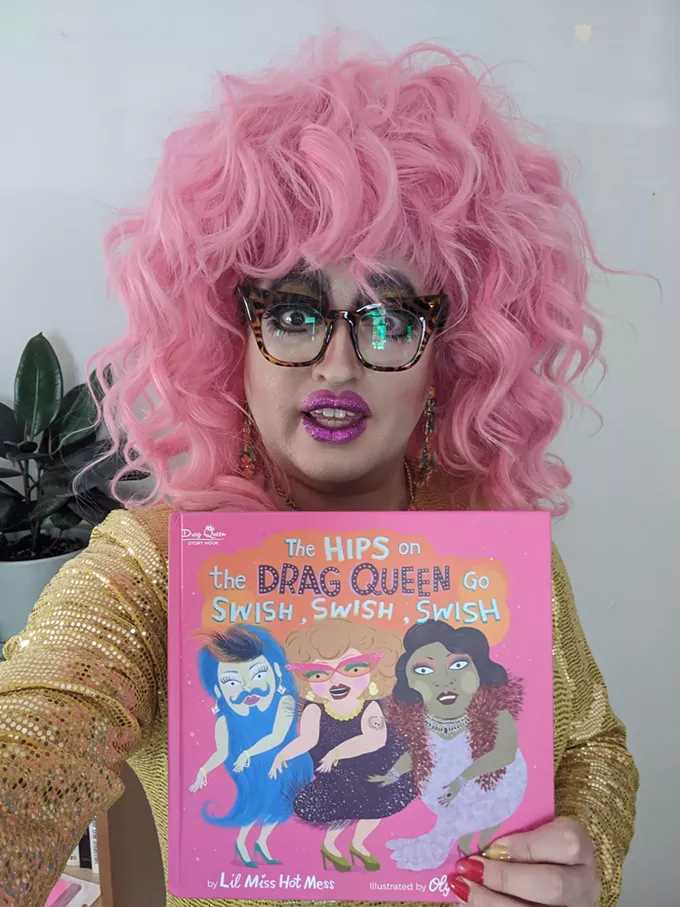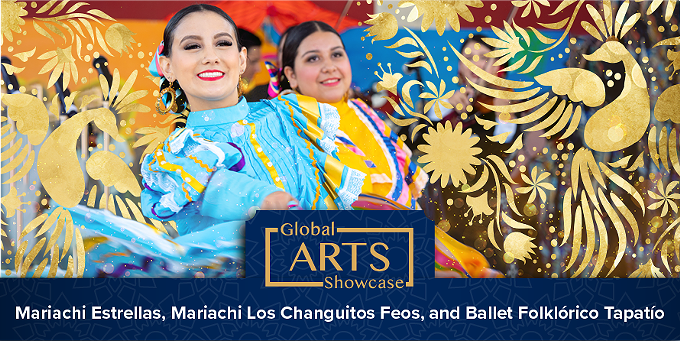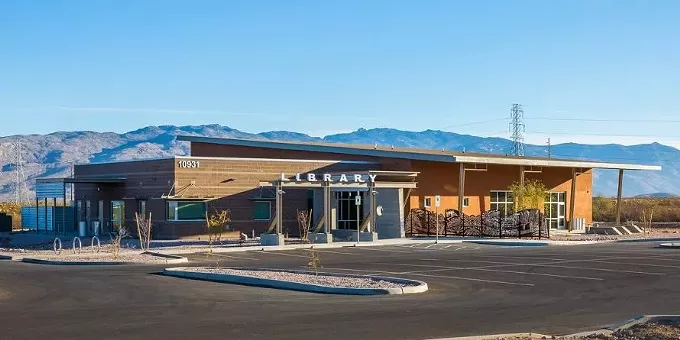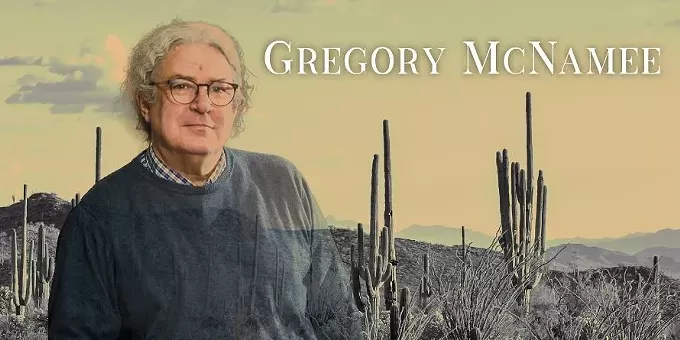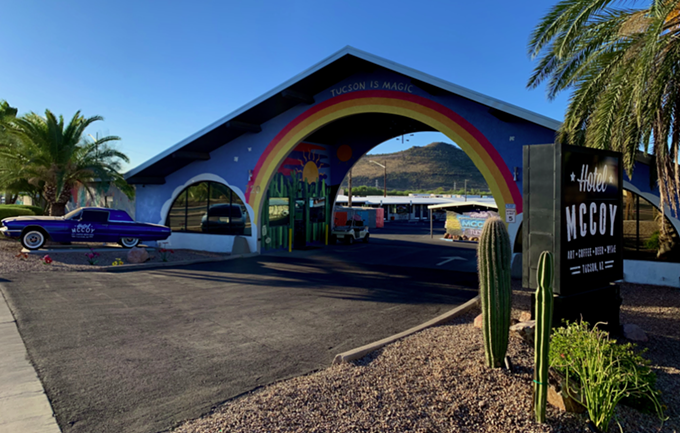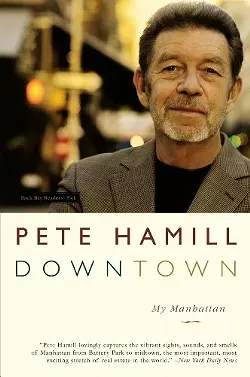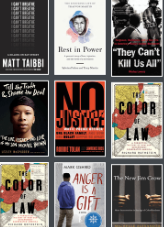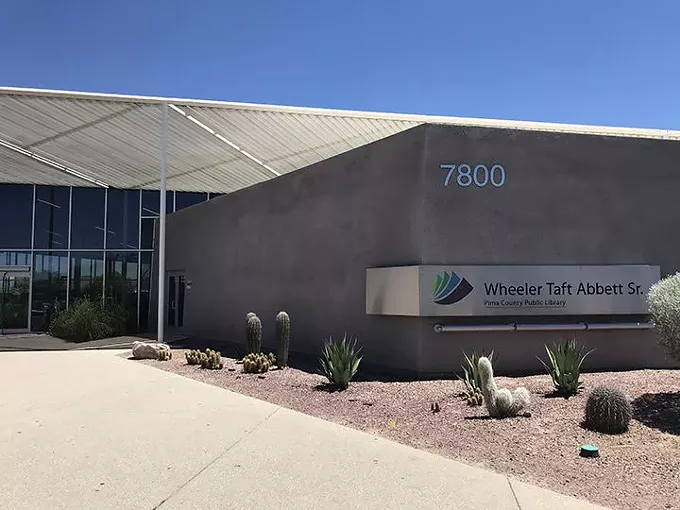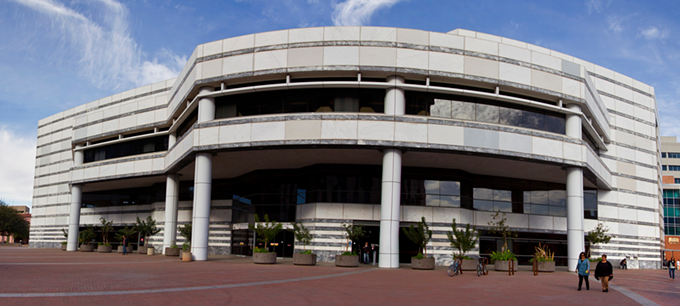Monday, October 25, 2021
Lil Miss Hot Mess will present her research on drag studies at the University of Arizona Poetry Center, 1508 E. Helen St., in the Dorothy Rubel Room at 7 pm on Tuesday, Oct 26.
Lil Miss Hot Mess is a well-known drag queen, activist, scholar, children’s book writer and storyteller of Drag Queen Story Hour, a program that brings drag queens and children together for storytime. Her children’s books include The Hips on the Drag Queen Go Swish, Swish, Swish. (The forthcoming If You’re a Drag Queen and You Know It will be available in May.) Lil Miss Hot Mess is a professor at UA who teaches history and theory of play. Lil Miss Hot Mess’s presentation is part of UA’s 2021 Tucson Humanities Festival and will be available for live stream at humanitiesfestival.arizona.edu/live.
What can attendees expect to see at the presentation?
It’s an overview of my work with Drag Queen Story Hour and some research that I've done on drag pedagogy. In addition to being a drag performer, I am also a professor at the U of A. Some of my research is about what can we learn from Drag Queen Story Hour in the broadest possible sense. Not just, how do we think about LGBT or gender 101? But, how we can learn to be better teachers or educators if we adapt some of the strategies of drag performers. I talk about things like how to incorporate humor to de-stigmatize difficult topics.
What topics are you destigmatizing?
When I talk about drag I like to actually highlight that it's not just about gender, it's not just about a physical transformation because drag has many different forms. Drag is about exaggeration. It's about turning your fantasy into a reality and often it's about dealing with difficult topics through a sense of camp, through a sense of humor. Being willing to laugh at ourselves and laugh at the world, but also take some of these things seriously. For example with Drag Queen Story Hour, we like to read books that address different topics of diversity, bullying, of finding your own creative voice. But, we also like to read the classic Everyone Poops. Which is a way of taking a thing that can be serious, scary, or shameful for kids and reading the book together and laughing at it. I also think it is for kids who might be questioning their identity, their gender identity or feel different because they are multiracial, adopted or have a disability. They learn about finding strength through humor and leaning into those things that make us different is part of what drag culture is all about.
What inspired you to do this type of research?
I fell into Drag Queen Story Hour through some of my friends in the San Francisco Bay Area. It started in 2015. I was living in New York at the time, and we brought it to New York. You know, it's blossomed all around the country and all around the world. I think there are so many affinities between drag performers and children. Drag is literally dressing up and playing. Kids are all about imagination. They're all about play, they're all about asking a lot of questions and I think that's another thing drag does well is that it questions authority, it questions history. It asks why? Why should we do something one way because it has always been done that way? Being able to explore that with kids not only provides them an important educational opportunity but I've also learned a lot in so many different ways from working with children in drag. The research came after doing the events because I wanted to go a little bit deeper.
It's like a commentary on education and how we can approach talking about these deeper topics with kids.
Much of education is test scores and memorizing. Even important work in diversity or social justice topics still tends to be framed as learning the vocabulary for LGBTQ or learning how to get some of these things right. I think that drag opens up a little bit more space for improvisation, for experimentation, for taking risks, for being willing to fail together and laugh at off or learn from it. I think that is actually a major shift from the way that we think of education in this country.
What are you hoping people walk away with from your event?
My main goal throughout all of this work is to get people to loosen up a little bit and enjoy that sense of play and be open to thinking about things in a different way. I will talk about five specific strategies that people can use but again, I don't want people walking away with notes. I want people to walk away feeling that we can activate our imaginations to do things differently. How do we tap into our own creativity? How do we use that to reimagine our world?
I think drag can intersect with a lot of different aspects of our lives. One thing that I try to make clear is that when I talk about drag pedagogy or drag education, I'm not suggesting that every teacher put on a wig or a pair of heels. But that people think about some of these elements to transforming something about the way you work, or bringing out an aspect of your personality that you don't always allow to shine can change the way that you relate to people or relate to different situations. So it's not about becoming a drag but it’s really about learning a little bit from us.
Tags: Tucson Humanities Festival , drag , drag queen , Lil Miss Hot Mess , University of Arizona , UA , humanities , storytelling , children's books , Image
Friday, September 10, 2021
Join Arizona Public Media and the Pima County Public Library in celebration of the rich Mexican-American and Latinx cultural heritage of Southern Arizona during Mes de la Cultura! Enjoy a virtual celebration of Mexican-American and LatinX art, music, and dance with performances by Mariachi Estrellas de Tucson, Mariachi Los Changuitos Feos, and Ballet Folklórico Tapatío.
You’ll get a first look at Arizona Illustrated’s story about Carlos Valenzuela, a Chicano tile artist, and his work across Tucson’s south side. Plus, you’ll get an inside view of the Pima County Public Library’s Frank De La Cruz Borderlands collection!
After the show, performers will be sharing more about the rich cultural history of these art, music and dance forms, share some of their own experiences performing, and answering YOUR questions during a live Q&A. We hope you’ll join the conversation!
This event is sponsored by Arizona Public Media, and the Library's Welcome to America and Nuestras Raíces teams.
About the Performers
Mariachi Estrellas de Tucson is a youth mariachi group from Tucson. With performers ranging in age from 10 to 17 years old, the group has participated in the Tucson International Mariachi Conference in Tucson, Arizona, and the Rosarito International Mariachi Conference in Rosarito, Baja California, México.
Mariachi Los Changuitos Feos (LCF) is widely regarded as the first youth mariachi group and the first seed of the growing youth mariachi movement in the United States. The group includes twelve high-school aged musicians under the direction of Salvador Gallegos. Founded in 1964, LCF now carries a five-decade legacy of musicianship and dedication.
Ballet Folklórico Tapatío (BFT) is a non-profit folkloric dance group established in 1997 under the direction of Jose Luis Baca and Marissa Gallegos. This group is based in South Tucson, and has over 150 members. They have performed throughout the United States, Mexico and Colombia, and are recognized as one of the finest folkloric programs in the nation.
Wednesday, February 17, 2021
On Tuesday, Feb. 16, the Pima County Public Library officially opened the W. Anne Gibson-Esmond Station Library on the far southeast side of Tucson at 10931 E. Mary Ann Cleveland Way. Due to COVID, there is no public entry at this time, but the library is offering curbside pickup. Books can be reserved online or via Infoline at (520) 791-4010.
The W. Anne Gibson-Esmond Station Library is the 27th library in the PCPL system, and is intended to primarily serve those living in the greater Vail area, such as Corona de Tucson and Rita Ranch.
The 8,000 square-foot library was designed by BWS Architects and was named after Anne Gibson, who served on the Vail School District Governing Board from 1999 to 2010 and has long advocated bringing a library to the greater Vail area. Construction on the library began in late January 2020.
"Southeast residents have been waiting a long time for a library," said Mary McKinney, library manager. "I am happy and excited that the community can finally begin to use their new library. I feel fortunate that I will be there when it happens.”
Curbside pickup at the W. Anne Gibson-Esmond Station Library is available Monday through Friday from 10 a.m. to 5 p.m. For more information about PCPL's curbside pickup program, click here.
Tuesday, February 2, 2021
Twice a year, the Pima County Public Library selects a local writer in residence to teach writing workshops and hold office hours for the community. For the upcoming spring semester, PCPL has selected Gregory McNamee, a local writer, photographer and journalist who has released multiple books on the culture and history of Arizona.
McNamee’s selection marks the 11th writer in residence since PCPL started the program in 2016. The residence is open to authors of any genre, and previous writers in residence include Alice Hatcher, J.M. Hayes, Janni Lee Simner, Susan Cummins Miller and Tucson Weekly's Margaret Regan.
Due to COVID, the writer in residence office hours will be conducted over Zoom in 30-minute blocks. McNamee will offer these one-on-one consultations every Tuesday from 9 to 11 a.m. and Thursday from 1 to 3 p.m. But there will be no sessions offered on Thursday, Feb. 11.
During his tenure, McNamee will also host three virtual workshops:
- The Sonoran Desert in Literature: Saturday, February 6, 2021, from 11 a.m. to 12:30 p.m.
- The Nature of Fact: Saturday, March 13, from 11 a.m. to 12:30 p.m.
- Writing Nonfiction: Saturday, April 10, from 11 a.m. to 12:30 p.m.
"I'm fond of the program because it embodies so much of the library's mission," said Holly Schaffer, PCPL community relations manager. "It allows the community to learn about writing in different styles and genres. It really demystifies the process of writing."
The Writer in Residence Program is funded by the Arizona State Library, Archives, and Public Records, a division of the Secretary of State, with federal funds from the Institute of Museum and Library Services.
Tuesday, January 5, 2021
The bookstore was founded by Syrena Arevalo-Trujillo, a University of Arizona alum who noticed a lack of representation for children of color in literature while teaching at a local charter school.
Arevalo-Trujillo was looking to open a bookstore at the same time Hotel McCoy, 720 W. Silverlake Road, was developing a “community support program for entrepreneurs who were seeking opportunities to start a storefront business.”
Barrio Books dedicates 15% of their shelf space to Indigenous authors and authors of color. They carry new and used books, including local authors, and have a book trade-in program. Hotel McCoy guests will receive 10% off Barrio Books purchases.
Hotel McCoy, which opened in 2018, showcases Tucson’s art and culture by having local artists design the hotel’s rooms and lobbies. In addition, they offer local food, beer and more.
For more information, visit barriobooks520.com and hotelmccoy.com
Wednesday, August 5, 2020
Hamill penned the introduction to Tucson author Tom Miller's collection of essays and articles Revenge of the Saguaro. The Weekly is reprinting it with the kind permission of Miller in Hamell's honor.
Tom Miller found his way west from Washhington, D.C. during the late 1960s, that time in America when revolt was in the air along with a demand for renewal, both fueled by the music of rebellion. Young Americans were saying a collective No to the war in Vietnam. Parents were rejected, the suburbs were rejected, racism was rejected.
But that immense No also contained a very large Yes. The young, Miller among them, were trying very hard to make something new—that is, to establish values and social codes that were more humane, more open, more free. They talked about new ways of living. They started communes. They talked about the land. Some of it was foolish, much of it was adolescent, but a lot of it was touching and real.
The Yes played itself out in the American West. The East came to symbolize decay: physical decay, the collapse of industry and cities, the end of the immigrant myth. The migration into open places was an American migration, with millions of Americans leaving one version of the country and going to another. Tom Miller embraced the borderlands of the Southwest, as if sensing that his own subject matter lay in the buried templates of that beautiful, empty region that had once been Mexico.
He started writing for alternative newspapers, the many weeklies that grew up in the era in homage to—or imitation of—New York’s Village Voice. Those newspapers defined themselves by attitude and tone. They made no pretensions to an impossible objectivity; that was a time, after all, for choosing sides. But they intensely covered those subjects that got scant (or clumsy, or baffled) coverage in the mainstream press: the anti-war movement, drugs, racism, feminism, music, and the people who lived on the margins of the so-called American dream.
Miller was somewhat different; he embraced the subject matter without adopting the furious tone. He was too good a reporter and too fair a man to fall easily into glib ideological ranting, substituting rhetoric for seeing. He loved the Southwest because of what it was, instead of what it was not. But he wasn’t a booster out of the chamber of commerce either. He loved the border towns, from which Mexico had never departed, and celebrated their disorder and danger and tawdriness. He loved the austere pleasures of life in the desert. He loved places like Bisbee, the site of so many heartbreaking nights in the struggle to establish unions. And he wrote about those places with affection for the people who shared his own visions.
Wednesday, June 3, 2020
Our team, like so many of you, is sickened, saddened, heartbroken, and angry at the senseless loss of life in the Black community.
Our team's mission is a focused on. To reach, support, and celebrate the Black community. It is also our mission and calling to educate and share information with our community, Black or otherwise.
I Am Not OkayWe invite you to take a look at these book lists, spread knowledge, hold each other accountable, and love one another.
tweet this
#WeAreDoneDying
Celebrating Black Excellence
The History of the Black Community in Tucson
Read Black Love 2020
20+ Books of Lesser Known African-American Achievements
African-Americans Who Served and Defended Their County - The United States of America
Black History on Audio
Also, we invite you to Read Black!
Join us on Saturday, June 27 from 1 to 3 pm, for a quarterly round-robin style book discussion on a theme in order to further the conversation on Black literature, history, and culture. Come with book titles in order to share your excitement with curious, like-minded readers, and leave with a list of more to try!
In June, celebrate LGBTQ+ Pride Month by reading the works of Black authors across the gender and sexuality spectrum. Read a classic by James Baldwin, or a searing work of memoir and poetry. Read YA or romance. The works of queer Black folks can make meaningful and purposeful impacts upon all readers. Would you like some reading suggestions? Check out this list!
Please note that this is a virtual event that will be held via Zoom. Please register in order to receive a link and password shortly before the meeting.
Tags: George Floyd , #BlackLivesMatter , Pima County Public Library , Image
Tuesday, May 26, 2020
WE'RE GOING FINE FREE!
- If you have overdue fines on your account, they'll be cleared on July 1, 2020.
- We're introducing auto-renew! This means we will automatically renew your items, unless there is a hold on them (sorry, you've got to return these items by the due date). Items will be auto-renewed up to 4 times! We will continue to send you email updates about auto-renewals and due dates.
Friday, May 22, 2020
The new program, which begins July 1, will allow for up to four auto-renewals on library items, unless an item is on hold for another member. The library will also send email reminders, and members are still responsible for returning their items.
Overdue fines on accounts will also be cleared July 1.
"We are grateful to the Pima County Board of Supervisors for approving this change,” said library director Amber Mathewson, in a statement. “We want everyone to use and feel welcome in the Library, regardless of any fines they've incurred. This is just one of the ways we can support our community, and we look forward to welcoming back many customers who may have stepped away from the library for a while.”
Any fees for collections, interlibrary loans or other services will remain on member accounts, though the fees can often be paid in increments. Items overdue by 30 days will be considered lost and billable unless it is later returned.
According to the library, any bills over $50 will be sent to a collection agency, and an additional $10 fee will be added to the account.
For more information, and to find library location, go online to library.pima.gov.
Wednesday, May 13, 2020
There will still be precautions for coronavirus, including taking guests' temperatures before they enter the building, wearing face masks and maintaining six feet of physical distance. The library will also allow only a limited number of people in at a time, and guests will most likely have to wait in line to get in.
For more information, visit library.pima.gov


